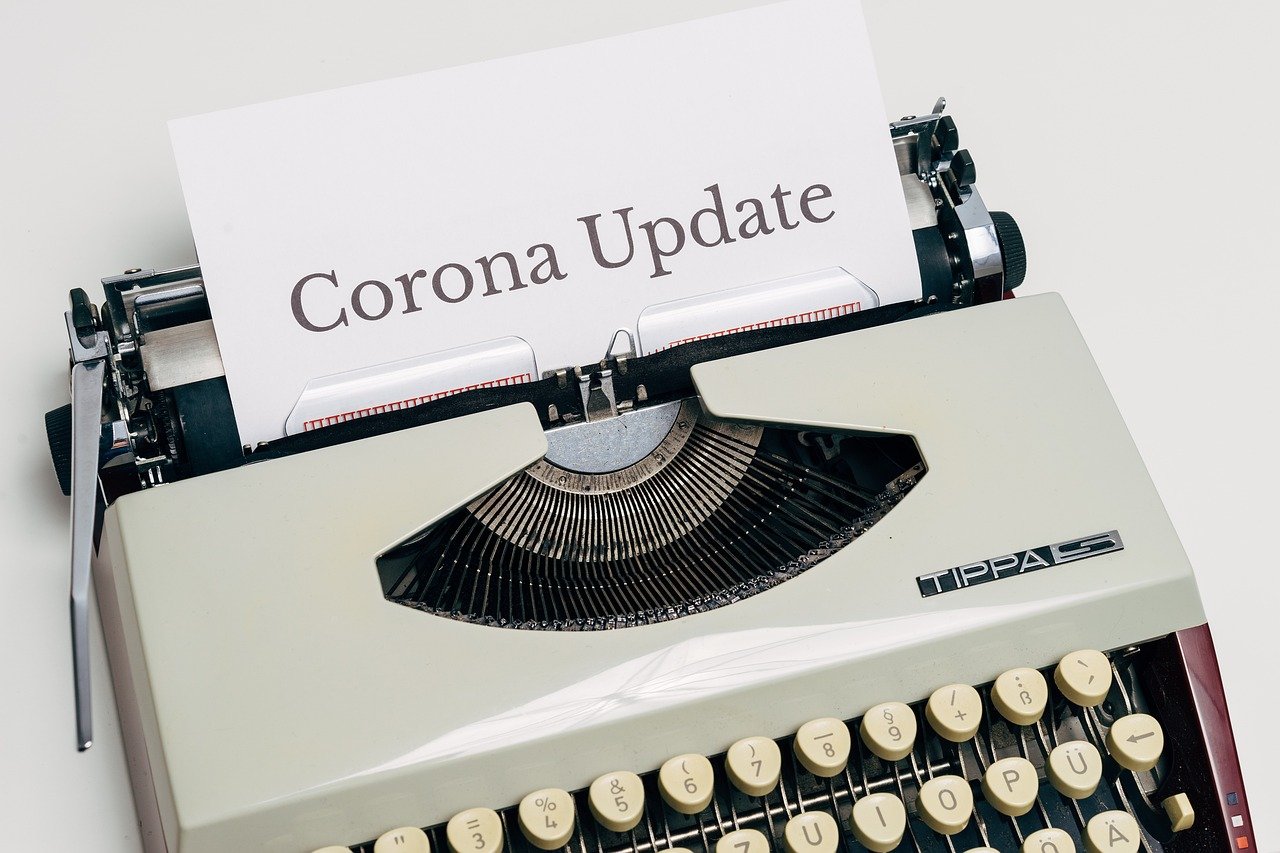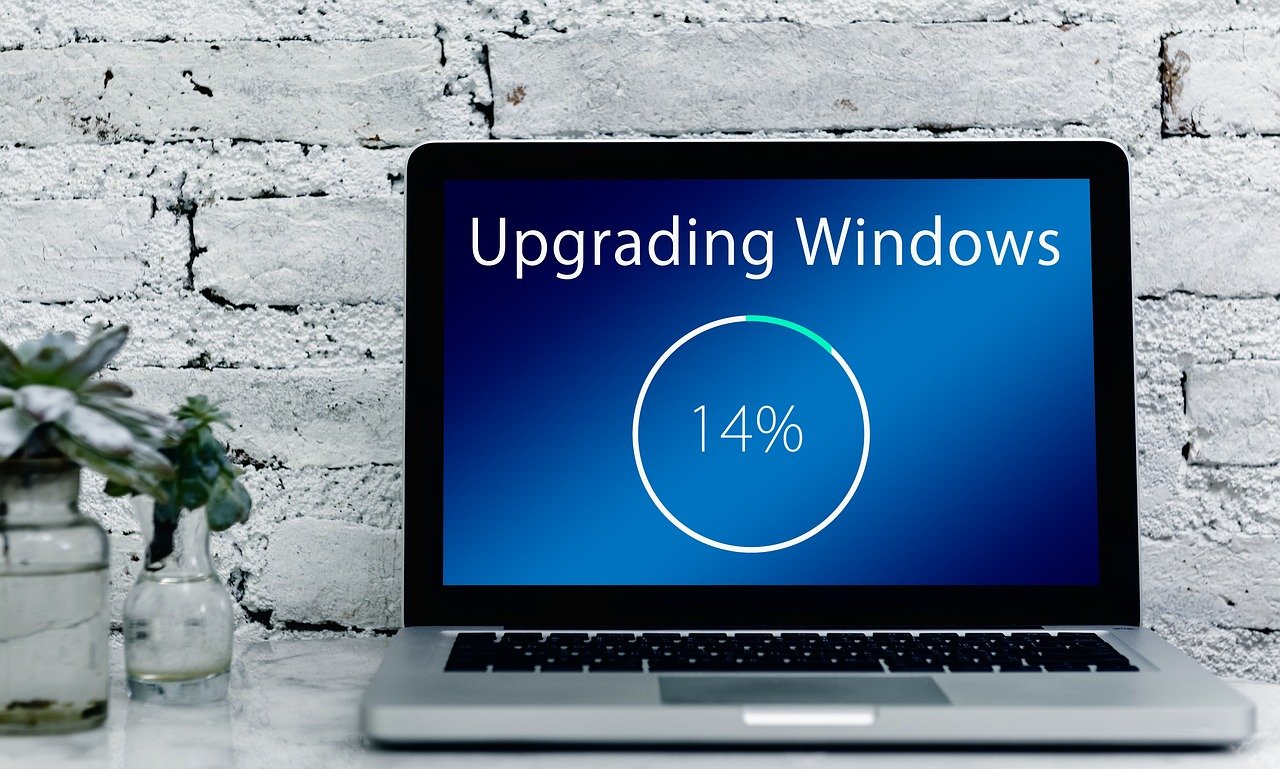If you have ever wondered whether you should update your will or estate plan due to changes in your life or financial situation, you are not alone. Many people find themselves pondering this question as they navigate through different stages of their lives. Whether you have experienced a major life event such as getting married, having children, or going through a divorce, or if you have had significant changes in your financial situation, it is essential to consider whether your current will or estate plan adequately reflects your wishes. By ensuring that your will or estate plan is up to date, you can have peace of mind knowing that your loved ones will be taken care of and your assets will be distributed according to your desires.
What is a will and estate plan?
Definition
A will and estate plan is a legal document that outlines how you want your assets to be distributed upon your death. It also includes provisions for appointing guardians for minor children, managing your affairs in the event of incapacity, and addressing other important aspects of your estate. It is a crucial tool to ensure that your wishes are carried out and your loved ones are protected.
Purpose
The purpose of a will and estate plan is to provide clear instructions for the distribution of your assets and to protect your loved ones after you pass away. It allows you to have control over who inherits what, rather than leaving it up to the laws of intestate succession. Additionally, it can help minimize estate taxes and avoid disputes among family members.
Key components
A will and estate plan typically includes several key components:
- Last Will and Testament: This document outlines how you want your assets to be distributed after your death. It can also include provisions for appointing guardians for minor children, specifying funeral arrangements, and naming an executor to carry out your wishes.
- Trusts: A trust is a legal arrangement in which you transfer your assets to a trustee, who manages them for the benefit of your beneficiaries. Trusts can help protect your assets, provide for minor children or individuals with special needs, and minimize estate taxes.
- Power of Attorney: A power of attorney is a legal document that appoints someone to manage your financial affairs if you become incapacitated. It allows the appointed person, known as an agent or attorney-in-fact, to make important financial decisions on your behalf.
- Healthcare Directive: A healthcare directive, also known as a living will or advance directive, outlines your preferences for medical treatment and end-of-life care. It appoints someone to make medical decisions for you if you are unable to do so yourself.
- Beneficiary Designations: Beneficiary designations are used to specify who will receive certain assets, such as life insurance policies, retirement accounts, and investment accounts, upon your death. These designations override any instructions in your will, so it’s important to keep them up to date.
Importance of keeping your will and estate plan up to date
Ensuring your wishes are carried out
One of the main reasons to keep your will and estate plan up to date is to ensure that your wishes are carried out after you pass away. Life is constantly changing, and your circumstances and preferences may evolve over time. By regularly updating your plan, you can ensure that it accurately reflects your current desires and distribution of assets.
Avoiding complications and disputes
Updating your will and estate plan can help avoid complications and disputes among your loved ones. If your plan is outdated or unclear, it may lead to confusion, disagreements, and even legal battles among your beneficiaries. By keeping your plan current, you can help minimize the potential for disputes and provide clear instructions for the distribution of your assets.
Protecting your loved ones
By keeping your will and estate plan up to date, you can protect your loved ones in various ways. For example, if you have minor children, it is important to regularly review and update your plan to ensure that you have designated appropriate guardians for them. Additionally, as your financial situation changes, updating your plan can help ensure that your loved ones receive the financial support they need.

Life changes that may require updating your will or estate plan
Marriage, divorce, or remarriage
Marriage, divorce, or remarriage are significant life events that should prompt a review of your will and estate plan. When you get married, you may want to include your new spouse as a beneficiary and make other changes to accommodate your new marital status. Conversely, if you get divorced, it is important to update your plan to remove your former spouse and make any necessary changes to your beneficiary designations.
Birth or adoption of children
The birth or adoption of children is another crucial life change that should prompt an update to your will and estate plan. You will want to ensure that your children are provided for financially and that you have designated appropriate guardians for them in case something happens to both parents. Additionally, if you have other children, it may be necessary to adjust their inheritance amounts to account for the new addition to your family.
Death of a beneficiary or executor
The death of a beneficiary or executor named in your will or estate plan should be a trigger for reviewing and updating your plan. If a beneficiary passes away, you may need to reassess how their share of the estate will be distributed. Likewise, if your designated executor or trustee is no longer available or willing to fulfill their duties, it is important to appoint someone else to carry out your wishes.
Significant increase/decrease in assets
A significant increase or decrease in your assets should prompt a review of your will and estate plan. If you come into a large sum of money, accumulate substantial assets, or experience a decrease in wealth, you may need to revisit your plan to ensure that everything is still in line with your goals and intentions. This will help ensure that your assets are distributed according to your wishes and that potential tax implications are considered.
Relocation to a different state or country
Relocating to a different state or country is another important life change that should prompt a review of your will and estate plan. Different jurisdictions have varying laws and requirements regarding wills and estates, and what may have been valid in one location may not be recognized in another. It is essential to consult an attorney or estate planner to ensure that your plan remains valid and enforceable after a change of residence.
Financial changes that may require updating your will or estate plan
Purchasing or selling real estate
Purchasing or selling real estate is a financial change that may necessitate an update to your will and estate plan. If you acquire new properties, you will want to include them in your plan and specify how they should be distributed. Likewise, if you sell or transfer properties, you may need to revise your plan accordingly to remove those assets from consideration.
Starting or closing a business
Starting or closing a business is another financial change that may require an update to your will and estate plan. If you become a business owner, you will want to consider how your business assets will be distributed and whether any provisions need to be made for the continuation of the business. Conversely, if you close your business, you will need to adjust your plan to remove any business-related provisions and consider how the remaining assets should be distributed.
Changes in investment portfolio
Changes in your investment portfolio, such as buying or selling stocks, bonds, or other investments, should prompt a review of your will and estate plan. Your investment assets are part of your estate, and any changes to your portfolio may affect how your assets are distributed. Reviewing and updating your plan in light of these changes will help ensure that your wishes are accurately reflected and that your beneficiaries receive the intended assets.
Inheritance or receiving a large sum of money
If you receive an inheritance or a large sum of money, it is important to update your will and estate plan. The additional assets may significantly alter your financial situation and require adjustments to reflect the new wealth. Consideration should be given to whether the inheritance will be distributed according to your existing plan or if changes are needed to accommodate the new assets.
Changes in tax laws
Changes in tax laws can have a significant impact on your estate planning. If there are significant changes in the tax laws, it is important to review your will and estate plan to ensure that your assets are structured in a way that minimizes tax burdens and maximizes benefits for your beneficiaries. Consulting with an attorney or estate planner can help ensure that your plan remains effective in light of any changes in tax laws.

Steps to determine if you need to update your will or estate plan
Reviewing your current will and estate plan
The first step in determining if you need to update your will or estate plan is to review your existing documents. Take the time to read through your will, trusts, powers of attorney, healthcare directives, and beneficiary designations. Make note of any outdated information, changes that need to be made, or areas that may no longer align with your current wishes and circumstances.
Assessing recent life and financial changes
Next, assess any recent life and financial changes that may impact your will and estate plan. Consider the life events and financial changes discussed earlier, such as marriage, divorce, birth or adoption of children, death of a beneficiary or executor, significant changes in assets, and relocation. Evaluate how these changes may affect your plan and whether updates are necessary.
Consulting with an attorney or estate planner
To ensure that your updates are legally sound and comprehensive, it is advisable to consult with an attorney or estate planner. They have the expertise to guide you through the process and address any potential issues or challenges that may arise. They can help ensure that your updated plan meets all legal requirements and accurately reflects your wishes and goals.
Considering beneficiary updates
During the update process, it is important to consider whether any changes need to be made to your designated beneficiaries. Evaluate whether your chosen beneficiaries are still appropriate and if any additions or removals are necessary. Review and update your beneficiary designations on any applicable accounts or policies to align them with your updated will and estate plan.
Updating power of attorney and healthcare directives
Lastly, don’t forget to update your power of attorney and healthcare directives, if needed. Changes in your life or relationships may impact who you want to make financial and healthcare decisions on your behalf. Make any necessary updates to these documents to ensure that the designated individuals are still the ones you trust to carry out your wishes.
Common mistakes to avoid when updating your will or estate plan
Failing to address specific personal property
One common mistake is failing to address specific personal property in your will or estate plan. Personal property, such as jewelry, art, or sentimental items, can hold significant value to your loved ones. Including specific instructions for the distribution of personal property can help prevent disputes and ensure that your sentimental assets are passed on to the intended beneficiaries.
Forgetting to update beneficiary designations
Forgetting to update beneficiary designations is another mistake to avoid. As mentioned earlier, beneficiary designations on certain accounts, such as life insurance policies and retirement accounts, override any instructions in your will. Failing to update these designations can result in assets being distributed contrary to your wishes. Regularly review and update your beneficiary designations to ensure they align with your updated will and estate plan.
Not accounting for digital assets
In today’s digital age, it is important to account for digital assets in your will and estate plan. Digital assets can include online accounts, cryptocurrencies, digital files, and social media profiles. Make sure to include provisions for the management and distribution of these assets, as well as instructions for accessing and protecting them.
Neglecting to update executor or trustee designations
Neglecting to update executor or trustee designations is another common mistake. Your chosen executor or trustee may no longer be available or suitable to fulfill their duties. Regularly review and update your designations to ensure that you have appointed someone who is willing and capable of handling the responsibilities of administering your estate.
Not regularly reviewing and updating the plan
Finally, not regularly reviewing and updating your plan is a mistake that can have significant consequences. Life is constantly changing, and failing to adapt your plan to accommodate these changes can lead to unintended outcomes and disputes among your loved ones. Make it a priority to review and update your will and estate plan at least every few years, or whenever significant life or financial changes occur.

Importance of seeking professional advice for updating your will or estate plan
Understanding complex legal requirements
Updating your will and estate plan involves navigating complex legal requirements. Seeking professional advice from an attorney or estate planner can help ensure that your updates comply with all applicable laws and regulations. They can help you avoid costly mistakes and provide peace of mind knowing that your plan is legally sound.
Maximizing tax benefits
Professionals with expertise in estate planning can help you maximize tax benefits through strategic planning. They can take into consideration potential tax implications and help structure your assets in a way that minimizes tax burdens and maximizes the benefits for your beneficiaries. By seeking professional advice, you can optimize your plan to achieve your financial goals and provide for your loved ones.
Reducing the risk of challenges or disputes
Updating your will and estate plan with the guidance of a professional can help reduce the risk of challenges or disputes among your beneficiaries. They have experience in addressing potential contentious issues and can help you navigate sensitive family dynamics. By involving an impartial professional, you can minimize the likelihood of disputes and ensure that your wishes are carried out smoothly.
Tailoring the plan to your unique needs
Every individual’s situation is unique, and a professional can help tailor your plan to your specific needs and circumstances. They can consider factors such as your family structure, financial goals, and philanthropic aspirations to create a plan that aligns with your values and objectives. A customized plan will provide the greatest benefit to you and your loved ones.
Legal requirements for updating a will or estate plan
State-specific laws
When updating your will or estate plan, it is essential to consider state-specific laws. Each state has its own laws governing wills and estates, including requirements for execution, witnessing, and validity. It is important to consult with an attorney or estate planner who is familiar with the laws of your state to ensure that your updates comply with all necessary requirements.
Signing and witnessing requirements
Updating a will or estate plan generally requires proper signing and witnessing. The specific requirements may vary depending on your jurisdiction, but it often involves signing the documents in the presence of witnesses who are not beneficiaries or parties to the plan. These witnesses must also sign the documents to confirm the authenticity of your signature. Adhering to these signing and witnessing requirements is crucial to ensure the legal validity and enforceability of your updated plan.
Ensuring legal validity and enforceability
To ensure that your updates are legally valid and enforceable, it is important to comply with all relevant legal requirements. Failing to meet the necessary legal standards can result in your updates being deemed invalid or unenforceable. To avoid this, consult with an attorney or estate planner who can guide you through the process and ensure that your updates comply with all legal requirements.
Possible consequences of not updating your will or estate plan
Assets passing to unintended beneficiaries
Failing to update your will or estate plan can result in your assets passing to unintended beneficiaries. If your plan does not reflect your current wishes, the distribution of your assets may be guided by the laws of intestate succession. This could mean that your assets are distributed amongst family members according to a predefined formula, which may not align with your intentions or desires.
Delays or complications in estate administration
Outdated or insufficient estate planning can lead to delays or complications in the administration of your estate. Without clear instructions and up-to-date information, your designated executor or trustee may face difficulties in carrying out their responsibilities. This can result in protracted legal processes and unnecessary frustration for your loved ones.
Unnecessary tax burdens
If your estate plan is not regularly updated, you may be missing out on opportunities to minimize tax burdens. Tax laws and regulations are subject to change, and failing to update your plan accordingly can result in unnecessary taxes on your assets. By regularly reviewing and updating your plan, you can maximize tax benefits and ensure that your assets are distributed as efficiently as possible.
Family disputes and legal battles
Outdated or unclear estate planning can create fertile ground for family disputes and legal battles. When beneficiaries have different interpretations of your intentions or when your plan does not adequately address potential sources of contention, disputes can arise. These disputes can strain relationships, cause unnecessary emotional distress, and deplete your estate through costly legal proceedings.
Inability to provide for loved ones as intended
Failure to update your will or estate plan can result in your loved ones not being provided for as intended. If your plan does not reflect your current financial situation or needs, it may not adequately provide for your family members or other beneficiaries. Regularly updating your plan will help ensure that your loved ones receive the financial support you intended and are taken care of according to your wishes.
Frequently asked questions about updating a will or estate plan
How often should I update my will or estate plan?
There is no set interval for updating a will or estate plan, as it largely depends on your individual circumstances and any changes that may occur in your life or financial situation. However, it is generally recommended to review and update your plan every few years or whenever there are significant life events or financial changes. This ensures that your plan remains current and accurately reflects your wishes.
Can I make changes to my will without an attorney?
While it is possible to make changes to your will without an attorney, it is generally advisable to seek professional guidance. Estate planning involves complex legal requirements, and DIY changes may inadvertently invalidate your will or leave it open to challenges. An attorney or estate planner can provide valuable expertise, ensure that your updates comply with all legal requirements, and address any potential issues or concerns.
What happens if I die without updating my will?
If you die without updating your will, your assets will be distributed according to the laws of intestate succession. These laws vary from jurisdiction to jurisdiction but generally prioritize immediate family members, such as spouses, children, and parents. However, this distribution may not align with your wishes or intentions. By regularly updating your will, you can ensure that your assets are distributed according to your specific desires.
Can I make handwritten changes to my will?
Handwritten changes to a will, also known as holographic wills, are recognized and valid in some jurisdictions. However, the specific requirements for a holographic will vary by jurisdiction. In general, handwritten changes must be signed and dated to express your intent, and they should ideally be witnessed by individuals who can attest to the authenticity of the changes. It is advisable to consult with an attorney or estate planner to ensure that any handwritten changes comply with the applicable legal requirements.
Can I revoke or amend my will at any time?
In most jurisdictions, you have the right to revoke or amend your will at any time. This can be done by drafting a new will that explicitly revokes the previous will or by attaching a codicil, which is a separate document that amends specific provisions of the will. It is important to follow the legal requirements for revocation or amendment to ensure that your intentions are accurately reflected and that your changes are legally valid.

